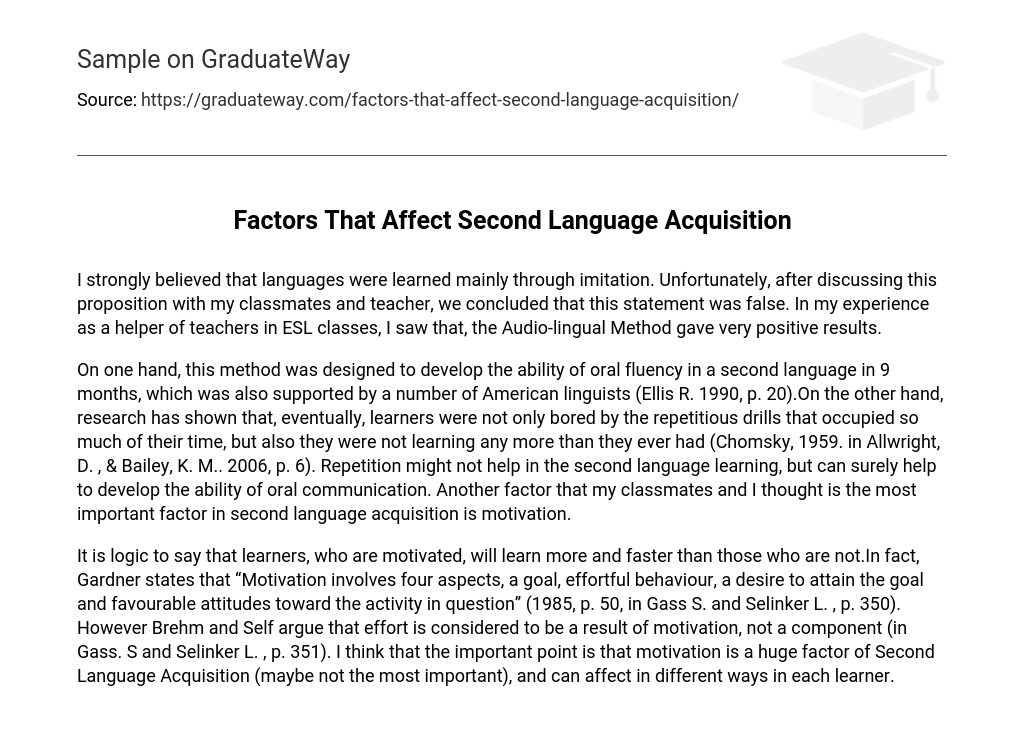I had a strong belief that languages were primarily acquired through the process of imitating others. However, after engaging in a discussion with my classmates and teacher, we collectively agreed that this statement was incorrect. In my capacity as a helper in ESL classes, I observed that the Audio-lingual Method yielded remarkably positive outcomes.
According to American linguists (Ellis R. 1990, p. 20), this method aims to improve fluency in a second language within 9 months. However, studies have shown that learners became tired of the repetitive exercises over time and did not make progress beyond their previous levels (Chomsky, 1959. in Allwright, D., & Bailey, K. M.. 2006, p. 6). Despite repetition not being helpful for second language acquisition, it can contribute to enhancing oral communication skills. Furthermore, motivation is considered crucial for acquiring a second language as per both myself and my classmates.
According to Gardner (1985, p. 50, in Gass S. and Selinker L., p. 350), learners who are motivated will learn more and faster compared to those who are not motivated. Gardner believes that motivation consists of four aspects: a goal, effortful behavior, a desire to achieve the goal, and positive attitudes towards the activity. However, Brehm and Self (in Gass S. and Selinker L., p. 351) argue that effort is a result of motivation rather than a component of motivation. Despite this debate, it is evident that motivation plays a significant role in Second Language Acquisition, although it may vary in its effects on each learner.





